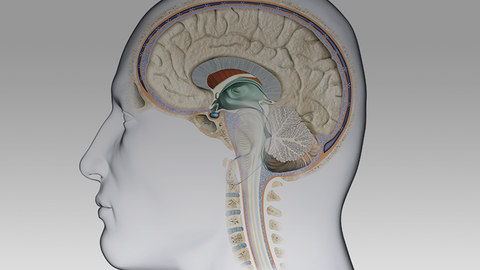Elevate your clinical expertise in acromegaly by delving into the latest advances in diagnosis, treatment modalities, and patient-centered care to foster a deeper understanding of optimal management strategies. Join us to enhance your skills and contribute to improved outcomes for patients with acromegaly.
Could Your Patient’s Symptoms Be Acromegaly?
Be part of the knowledge.™Comprehensive Care and Medical Management of Acromegaly: Achieving an Earlier Diagnosis and Biochemical Control
Comprehensive Care and Medical Management of Acromegaly: Achieving an Earlier Diagnosis and Biochemical Control
Could Your Patient’s Symptoms Be Acromegaly?
Overview
Disclosure of Relevant Financial Relationships
In accordance with the ACCME Standards for Integrity and Independence, Global Learning Collaborative (GLC) requires that individuals in a position to control the content of an educational activity disclose all relevant financial relationships with any ineligible company. GLC mitigates all conflicts of interest to ensure independence, objectivity, balance, and scientific rigor in all its educational programs.
Host:
Susan Samson, MD, PhD, FRCPC, FACE
Senior Associate Consultant
Department of Medicine, Diabetes,
Endocrinology and Metabolism
Neurologic Surgery Brain Tumor Program
Mayo Clinic
Jacksonville, FLNo relevant relationships reported
Faculty:
Eliza Geer, MD
Medical Director
Multidisciplinary Pituitary and Skull Base Tumor Center
Memorial Sloan Kettering Cancer Center
New York, NYDr. Geer has reported the following relevant financial relationships or relationships with ineligible companies of any amount during the past 24 months:
Consulting Fees: Amryt/Chiesi, Crinetics, Recordati
Research: Ionis, Amryt/Chiesi, RecordatiKevin Yuen, MD
Dignity Health Medical Group
Medical Director, Pituitary Program
Barrow Neurological Institute
Phoenix, AZDr. Yuen has reported the following relevant financial relationships or relationships with ineligible companies of any amount during the past 24 months:
Consulting Fees: Amryt/Chiesi, Ascendis, Crinetics, Ipsen, Neurocrine, Novo Nordisk, Recordati, Xeris
Research: Amryt/Chiesi, Ascendis, Corcept, SparrowReviewers/Content Planners/Authors:
- Stephen Chavez has nothing to disclose.
- Cindy Davidson has nothing to disclose.
- Libby Lurwick has nothing to disclose.
- Tim Person has nothing to disclose.
- Colleen Resnick has nothing to disclose.
- Mara Siegel has nothing to disclose.
Learning Objectives
After participating in this educational activity, participants should be better able to:
- Recognize the constellation of symptoms related to acromegaly and the need for timely referral of patients with these symptoms to an endocrinologist
- Describe the biochemical, imaging, and visual field tests used to diagnose acromegaly, including type and location of tumor
- Apply knowledge from recent clinical trials, current guidelines, and best practices to patient selection for a second-generation somatostatin receptor ligand (SRL) agent for treatment of acromegaly
- Formulate evidence-based strategies for monitoring and managing treatment-related adverse events associated with a second-generation SRL agent
Target Audience
This activity is designed to meet the educational needs of endocrinologists, primary care physicians, dentists, orthopedists, pituitary neurologists, internal medicine specialists, nurse practitioners, and physician associates.
Accreditation and Credit Designation Statements
 In support of improving patient care, Global Learning Collaborative (GLC) is jointly accredited by the Accreditation Council for Continuing Medical Education (ACCME), the Accreditation Council for Pharmacy Education (ACPE), and the American Nurses Credentialing Center (ANCC) to provide continuing education for the healthcare team.
In support of improving patient care, Global Learning Collaborative (GLC) is jointly accredited by the Accreditation Council for Continuing Medical Education (ACCME), the Accreditation Council for Pharmacy Education (ACPE), and the American Nurses Credentialing Center (ANCC) to provide continuing education for the healthcare team.
Global Learning Collaborative (GLC) designates this enduring activity for a maximum of 1.0 AMA PRA Category 1 Credit™. Physicians should claim only the credit commensurate with the extent of their participation in the activity.Global Learning Collaborative (GLC) designates this activity for 1.0 nursing contact hour. Nurses should claim only the credit commensurate with the extent of their participation in the activity.
 Global Learning Collaborative (GLC) has been authorized by the American Academy of PAs (AAPA) to award AAPA Category 1 CME credit for activities planned in accordance with AAPA CME Criteria. This activity is designated for 1.0 AAPA Category 1 CME credit. Approval is valid until January 25, 2025. PAs should claim only the credit commensurate with the extent of their participation in the activity.
Global Learning Collaborative (GLC) has been authorized by the American Academy of PAs (AAPA) to award AAPA Category 1 CME credit for activities planned in accordance with AAPA CME Criteria. This activity is designated for 1.0 AAPA Category 1 CME credit. Approval is valid until January 25, 2025. PAs should claim only the credit commensurate with the extent of their participation in the activity.Provider(s)/Educational Partner(s)

Prova Education designs and executes continuing education founded on evidence-based medicine, clinical need, gap analysis, learner feedback, and more. Our mission is to serve as an inventive and relevant resource for clinical content and educational interventions across a broad spectrum of specialties.
Prova Education's methodology demonstrates a commitment to continuing medical education and the innovative assessment of its effects. Our goal is clear—to develop and deliver the best education in the most impactful manner and to verify its results with progressive outcomes research.
Commercial Support
This activity is supported by an independent educational grant from Recordati Rare Diseases.
Disclaimer
The views and opinions expressed in this educational activity are those of the faculty and do not necessarily represent the views of GLC and Prova Education. This presentation is not intended to define an exclusive course of patient management; the participant should use his/her clinical judgment, knowledge, experience, and diagnostic skills in applying or adopting for professional use any of the information provided herein. Any procedures, medications, or other courses of diagnosis or treatment discussed or suggested in this activity should not be used by clinicians without evaluation of their patients’ conditions and contraindications or dangers in use, review of any applicable manufacturer’s product information, and comparison with recommendations of other authorities. Links to other sites may be provided as additional sources of information. Once you elect to access a site outside of Prova Education you are subject to the terms and conditions of use, including copyright and licensing restriction, of that site.
Reproduction Prohibited
Reproduction of this materialis not permitted without written permission from the copyright owner.System Requirements
Our site requires a computer, tablet, or mobile device and a connection to the Internet. For best results, a high-speed Internet connection is recommended (DSL/Cable/Fibre). We also recommend using the latest version of your favorite browser to ensure compliance with W3C standards, such as Chrome, Safari, Firefox, or Microsoft Edge.
Publication Dates
Release Date:
Expiration Date:



Facebook Comments